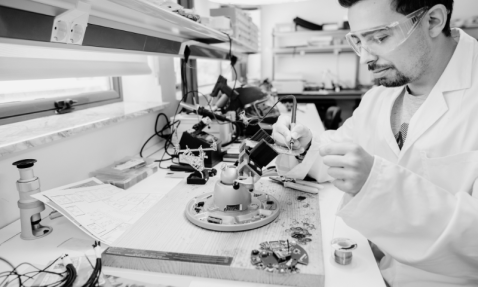ELIOTH+ML
More information

Expected results:
Evaluation of existing databases with data similar to that which we would obtain with the final hardware, in such a way as to allow progress in the development of Machine Learning techniques in parallel to the development of the hardware.
Algorithm development (AI). Evaluate the suitability of different ML algorithms for the analysis of routines and patterns and for the detection of anomalies and prevention of risk or accident situations. In particular, the following will be evaluated: convolutional autoencoders and variations, deep feedback networks, approximators and uniform latent space projectors (UMAP).
Development of a visualisation and interpretation tool. The tools for visualisation and interpretation of latent spaces obtained through deep learning networks (Deep Learning) will eventually allow a more adequate (less heuristic) interpretation of situations that allow a more efficient participation of relatives, caregivers or clinicians, through the monitoring of patterns and the detection of anomalies.
Cloud solution. Develop a database and cloud computing model for the developed technological platform, which allows a more flexible management, update and computation of all the data and elements that could eventually form part of the system. For this, AWS tools will be used.
Design and modeling of the proposed solution. Carry out a technological survey of sensitization elements, making the necessary improvements to the ELIOTH platform hardware, in order to provide the data with the necessary characteristics required by OE2 techniques, such as, for example, new types of sensors or improved characteristics with with respect to the initial platform.
Validation of the algorithms in the final solution. Validate the “Machine Learning” models designed with real data acquired with the improved and adapted ELIOTH+ML platform.
Project partners
Proyectos relacionados

Ubiasist

Sheld-ON Action














